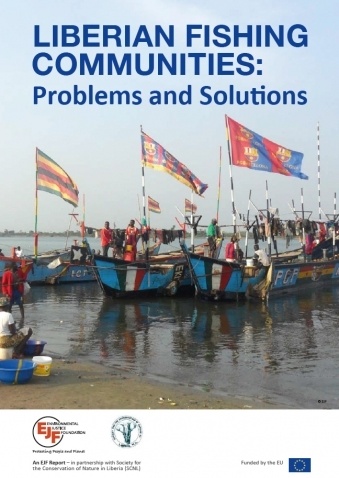
Search results
Showing 1481-1520 result returned for ""
-
News & Media
 Mar 14, 2012Switch energy supplier to Ecotricity and help EJF protect people and planetRead
Mar 14, 2012Switch energy supplier to Ecotricity and help EJF protect people and planetRead -
Films
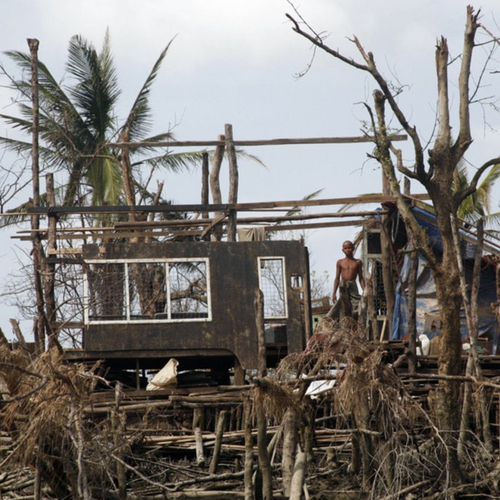 Mar 14, 2012No Place Like Home: IntroductionRead
Mar 14, 2012No Place Like Home: IntroductionReadNo Place Like Home: Introduction
By 2050, there will be an estimated 150 million climate refugees - people forced to leave their homes by droughts, extreme weather patterns and sea level rise associated with climate change. There is no international law designed to protect these most vulnerable people and their needs.
President Mohamed Nasheed of the Maldives and Premier Talagi of Niue told EJF about how climate change is affecting their countries.
EJF is calling for international protection for climate refugees. We believe that that there needs to be a legally-binding, international Protocol that identifies and protects these people displaced from their homes by deteriorating environmental conditions. We campaign for a new Special Rapporteur on human rights and climate change to be established in the United Nations Human Rights Council.
Human rights should be at the heart of international action on climate change.
-
Films
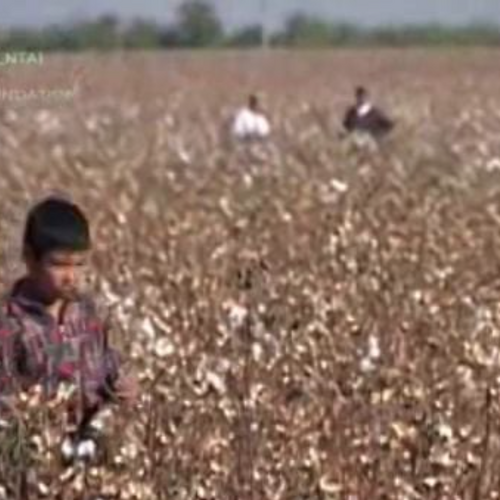 Mar 13, 2012Cotton: child labour and human rights abusesRead
Mar 13, 2012Cotton: child labour and human rights abusesReadCotton: child labour and human rights abuses
Children as young as seven are employed in the cotton industry for a variety of tasks including cottonseed production, pesticide spraying and the annual cotton harvest.
-
Films
 Mar 12, 2012Grenada and climate change: A Prime Minister's Perspective (long version)Read
Mar 12, 2012Grenada and climate change: A Prime Minister's Perspective (long version)ReadGrenada and climate change: A Prime Minister's Perspective (long version)
EJF interviews Tillman Thomas, the Prime Minister of Grenada, about the impacts of climate change that are already being felt in Grenada, and the commitments that countries should make to lower their carbon emissions.
"We need a voice on climate change because we are the most vulnerable," Thomas says. "We feel the impacts of climate change more than the larger nations."
The video is part of a series of interviews with philosophers, scientists, heads of state, academics, and UN officials on migration and climate change, curated and produced for the Hay Festival Maldives 2010.
-
Films
 Mar 12, 2012A head of state's concern: Premier Talagi, NiueRead
Mar 12, 2012A head of state's concern: Premier Talagi, NiueReadA head of state's concern: Premier Talagi, Niue
EJF interviews Premier Talagi of the Pacific island nation of Niue and former Chair of the Alliance of Small Island States (AOSIS).
Premier Talagi describes how his country is at the forefront of the changes that are already taking place as a result of our changing climate.
-
Films
 Mar 11, 2012Academic Predictions: Professor Norman Myers, Oxford UniversityRead
Mar 11, 2012Academic Predictions: Professor Norman Myers, Oxford UniversityReadAcademic Predictions: Professor Norman Myers, Oxford University
Professor Norman Myers of Oxford University, is a well-known environmental scientist specialising in biodiversity. In this video for EJF, he shares his thoughts on environmental impacts of climate change, how environmental degradation affects human migration, and his use of the term "environmental refugees".
The video is part of a series of interviews with philosophers, scientists, heads of state, academics, and UN officials on migration and climate change, curated and produced for the Hay Festival Maldives 2010.
-
Films
 Mar 10, 2012An Expert's Perspective: Mans Nyber, UNHCRRead
Mar 10, 2012An Expert's Perspective: Mans Nyber, UNHCRReadAn Expert's Perspective: Mans Nyber, UNHCR
Mans Nyber, head of press and information at the UN High Commissioner for Refugees (UNHCR) in London, dicusses forced migration and its impacts on the world's most vulnerable people.
The video is part of a series of interviews with philosophers, scientists, heads of state, academics, and UN officials on migration and climate change, curated and produced for the Hay Festival Maldives 2010.
-
Films
 Mar 09, 2012A Personal View: Emilia Fox, Actor and Patron of EJFRead
Mar 09, 2012A Personal View: Emilia Fox, Actor and Patron of EJFReadA Personal View: Emilia Fox, Actor and Patron of EJF
The award-winning British actor and EJF's Patron Emilia Fox shares her thoughts on climate change.
The video is part of a series of interviews with philosophers, scientists, heads of state, academics, and UN officials on migration and climate change, curated and produced for the Hay Festival Maldives 2010.
-
Films
 Mar 08, 2012A Politician's Perspective: Caroline Lucas MP, Leader of the Green PartyRead
Mar 08, 2012A Politician's Perspective: Caroline Lucas MP, Leader of the Green PartyReadA Politician's Perspective: Caroline Lucas MP, Leader of the Green Party
The video is part of a series of interviews with philosophers, scientists, heads of state, academics, and UN officials on migration and climate change, curated and produced for the Hay Festival Maldives 2010.
-
Films
 Mar 07, 2012An explorer's tale: Benedict Allen, explorer and authorRead
Mar 07, 2012An explorer's tale: Benedict Allen, explorer and authorReadAn explorer's tale: Benedict Allen, explorer and author
Part of a series of interviews with philosophers, scientists, heads of state, academics, UNHCR on migration and climate change curated and produced for the Hay Festival Maldives 2010.
-
Films
 Mar 06, 2012An advocate's message: Bianca Jagger, Human Rights FoundationRead
Mar 06, 2012An advocate's message: Bianca Jagger, Human Rights FoundationReadAn advocate's message: Bianca Jagger, Human Rights Foundation
Part of a series of interviews with philosophers, scientists, heads of state, academics, UNHCR on migration and climate change curated and produced for the Hay Festival Maldives 2010.
-
Films
 Mar 05, 2012No Place Like Home: Rising WatersRead
Mar 05, 2012No Place Like Home: Rising WatersReadNo Place Like Home: Rising Waters
By 2050, million of climate refugees will be forced to leave their homes by droughts, extreme weather patterns and sea level rise. There is no international law designed to protect their needs. EJF talked to President Mohamed Nasheed of the Maldives and Premier Talagi of Niue about how climate change is affecting their countries.
-
Films
 Mar 04, 2012Fashioning the FutureRead
Mar 04, 2012Fashioning the FutureReadFashioning the Future
Organic cotton t-shirts designed by Allegra Hicks, Jenny Packham, Richard Nicoll, Ciel, Giles Deacon, Allegra Hicks, Zandra Rhodes, John Rocha, Luella, Katharine Hamnett, Christian Lacroix, Betty Jackson for EJF.
-
Films
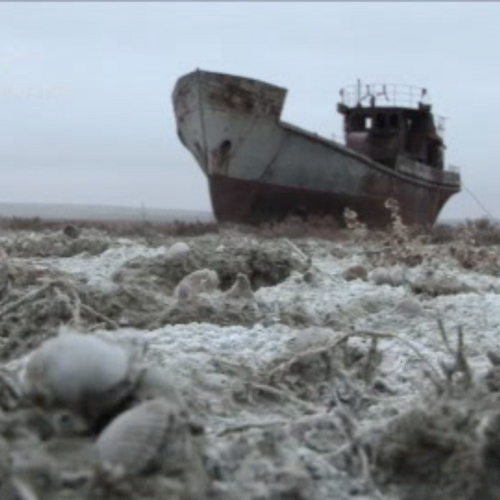 Mar 03, 2012Cotton - Environmental Disaster & Lethal PesticidesRead
Mar 03, 2012Cotton - Environmental Disaster & Lethal PesticidesReadCotton - Environmental Disaster & Lethal Pesticides
A short film focussed on the environmental abuses associated with cotton production.
-
Films
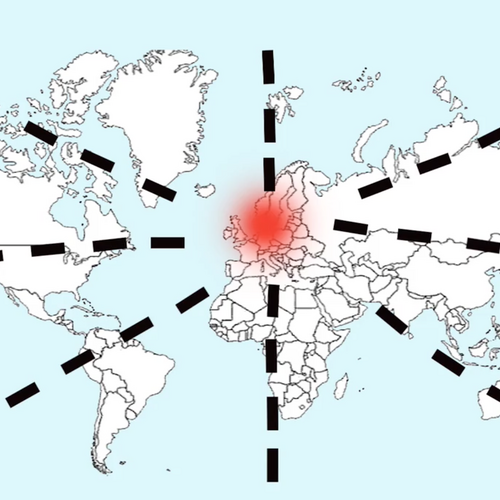 Mar 02, 2012COP15 explainedRead
Mar 02, 2012COP15 explainedReadCOP15 explained
At the climate change summit in Copenhagen in December, world leaders will make decisions affecting the future of our planet.
-
Films
 Mar 01, 2012Cotton: Have you picked yours carefully?Read
Mar 01, 2012Cotton: Have you picked yours carefully?ReadCotton: Have you picked yours carefully?
Over two thirds of the world’s cotton is grown in developing countries and the former Soviet Union. Valued at over $32 billion every year, global cotton production should be improving lives. But this "white gold" too often brings misery.
With thanks to sound studio 4AM Productions.
-
Films
 Feb 29, 2012Plunder of the Oceans - EJF at the Frontline ClubRead
Feb 29, 2012Plunder of the Oceans - EJF at the Frontline ClubReadPlunder of the Oceans - EJF at the Frontline Club
(Audio only)
EJF's Ocean Campaigner Andy Hickman speaks at the Frontline Club on the 7th June. Short film screening of Deadly Catch, followed by a discussion with an expert panel and audience Q&A. Chaired by Tom Clarke, science correspondent Channel 4 News. Domitilla Senni, policy adviser to the Pew Environment Group since 2006. John Pearce is a Senior Consultant at MRAG Ltd.
One of the single biggest factors in ocean degradation is overfishing. Fish stocks have declined dramatically, with as much as 90% of big fish gone in some parts of the global ocean. More than one billion people rely on fish as their main source of protein globally. As catches decline and quotas and rules are tightened in response, there has been a huge increase in illegal, unreported or unregulated (IUU) or “pirate” fishing.
Pirate fishing is estimated to make up almost one-fifth of the global catch, and respects neither national boundaries nor international attempts to manage ocean resources. The recent seizure of £4 million worth of seafood in the Spanish port of Las Palmas, allegedly caught illegally in west African waters and headed for dinner tables in Europe, serves to highlight this growing criminal trade, which exploits lax regulations at ports and on the high seas, and often involves serious human rights infringements.
-
Films
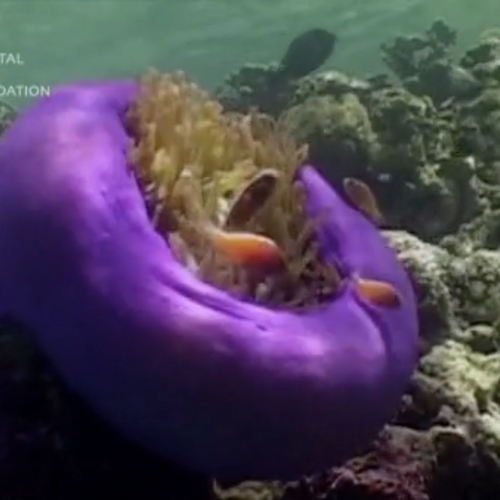 Feb 28, 2012Jo Royle supports EJF's Save the Sea CampaignRead
Feb 28, 2012Jo Royle supports EJF's Save the Sea CampaignReadJo Royle supports EJF's Save the Sea Campaign
Jo Royle in support of EJF's campaign Save the Sea!
-
Films
 Feb 26, 2012Be a SuperHero!Read
Feb 26, 2012Be a SuperHero!ReadBe a SuperHero!
Superheroes are sent to save the world and we need you!
Join us to walk, run, skip or jump around Regent's Park, Sunday 13th of May 2012.
Register at www. ejfoundation.org/superherorun
Tel: 0207 239 3310Get funding
Choose your costume and run or walk 5km for EJF.
BE A SUPERHERO!!!!
-
Films
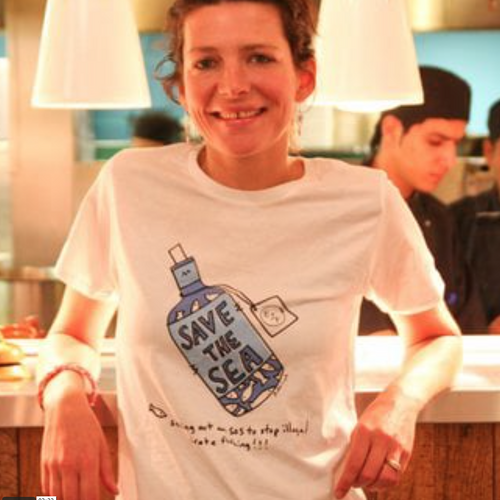 Feb 25, 2012Wahaca's Tommi Miers: Save the Sea CampaignRead
Feb 25, 2012Wahaca's Tommi Miers: Save the Sea CampaignReadWahaca's Tommi Miers: Save the Sea Campaign
Wahaca's Tommi Miers supports EJF's Save the Sea Campaign.
-
Films
 Feb 24, 2012EJF at the Real Food FestivalRead
Feb 24, 2012EJF at the Real Food FestivalReadEJF at the Real Food Festival
The Environmental Justice Foundation was at the Real Food Festival this year talking to the public, chefs and industry about the Save the Sea campaign and illegal fishing in West Africa.
Alongside EJF's exhibition showing the supply chain of illegal fish from West Africa making its way to Europe and the impacts on coastal fishing communities in Sierra Leone, the event was also a great opportunity for EJF volunteers and campaigners to discuss the issues and ask people why they think it's so important to Save the Sea.
-
Films
 Feb 22, 2012Tanzania - Where the rain fallsRead
Feb 22, 2012Tanzania - Where the rain fallsReadTanzania - Where the rain falls
An eight-country study by CARE & UN University to understand rainfall, hunger and human mobility.
Courtesy of CARE International.
-
Films
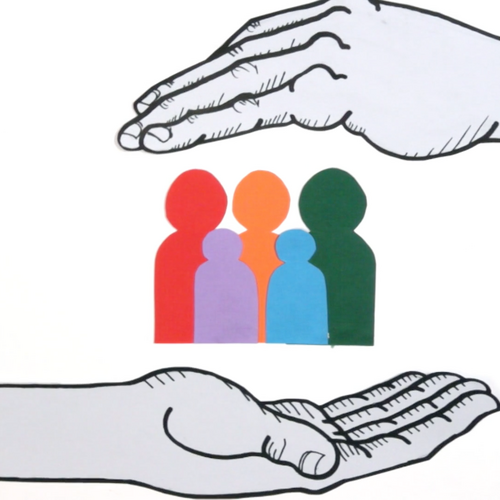 Feb 21, 2012Postcards from the frontlines - How to take partRead
Feb 21, 2012Postcards from the frontlines - How to take partReadPostcards from the frontlines - How to take part
Help protect climate refugees. Send your postcard today.
-
News & Media
 Feb 20, 2012Vivienne Westwood's TShirt for EJF at London Fashion WeekRead
Feb 20, 2012Vivienne Westwood's TShirt for EJF at London Fashion WeekRead
-
Reports
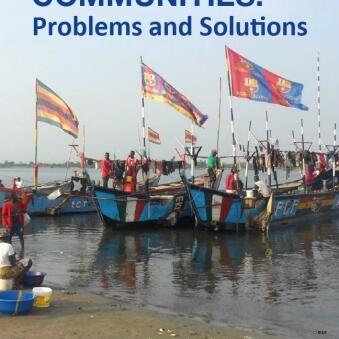 Feb 20, 2012Liberian Fishing Communities: Problems and SolutionsRead
Feb 20, 2012Liberian Fishing Communities: Problems and SolutionsReadAs a first step in community engagement, and to inform the other sets of activities in Liberia, in early 2012 EJF held meetings in 13 communities. These were spread across the country, though seven were focused in Grand Cape Mount County, which is the site of Liberia’s recently inaugurated pilot CMA.
This document sets out findings from each community. It also provides an analytical summary of results across Liberia that will inform a set of working recommendations that will guide EJF’s work with artisanal fishing communities, both in Liberia and elsewhere in West Africa.
-
News & Media
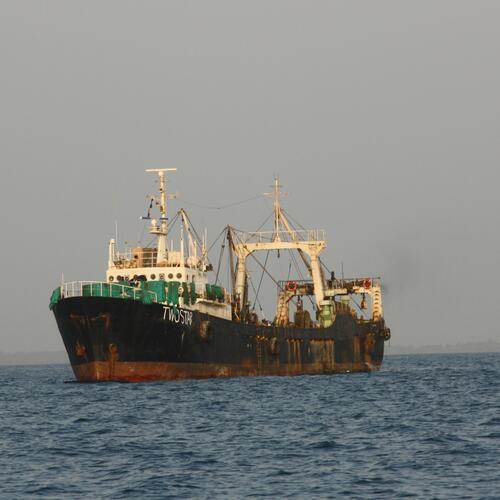 Feb 10, 2012Sierra Leone meeting signals progress towards combating pirate fishingRead
Feb 10, 2012Sierra Leone meeting signals progress towards combating pirate fishingRead -
Films
 Feb 09, 2012Illegal 'pirate' fishing in Sierra Leone - Fishermen testimoniesRead
Feb 09, 2012Illegal 'pirate' fishing in Sierra Leone - Fishermen testimoniesReadIllegal 'pirate' fishing in Sierra Leone - Fishermen testimonies
The importance of sustainable fisheries in Sierra Leone and the impacts of illegal fishing on the local communities.

Supported by the European Union
-
Films
 Feb 08, 2012David Gandy supports EJF's Save The Sea CampaignRead
Feb 08, 2012David Gandy supports EJF's Save The Sea CampaignReadDavid Gandy supports EJF's Save The Sea Campaign
Supermodel David Gandy teams up with the Environmental Justice Foundation (EJF) to 'Save the Sea'.
-
Films
 Feb 07, 2012Antony Worrall Thompson supports EJF's Save The Sea CampaignRead
Feb 07, 2012Antony Worrall Thompson supports EJF's Save The Sea CampaignReadAntony Worrall Thompson supports EJF's Save The Sea Campaign
Antony Worrall Thompson supports EJF's Save The Sea Campaign.
-
Films
 Feb 06, 2012Jade Parfitt supports the Climate Week T-shirt for EJFRead
Feb 06, 2012Jade Parfitt supports the Climate Week T-shirt for EJFReadJade Parfitt supports the Climate Week T-shirt for EJF
Jade Parfitt's message at the photoshoot for the Climate Week T-shirt in support of EJF's No Place Like Home campaign.
People are being forced from their homes and land by deteriorating environmental conditions linked to climate change. Conditions like creeping desertification, flooding, rising sea levels and more intense extreme weather events. Some will be forced to leave temporarily, others permanently.
EJF believes that there needs to be a new legally-binding instrument identifying and protecting climate refugees. -
Films
 Feb 05, 2012KT Tunstall supports the Climate Week T-shirt for EJFRead
Feb 05, 2012KT Tunstall supports the Climate Week T-shirt for EJFReadKT Tunstall supports the Climate Week T-shirt for EJF
KT Tunstall's message at the photoshoot for the Climate Week T-shirt in support of EJF's No Place Like Home campaign.
People are being forced from their homes and land by deteriorating environmental conditions linked to climate change. Conditions like creeping desertification, flooding, rising sea levels and more intense extreme weather events. Some will be forced to leave temporarily, others permanently.
EJF believes that there needs to be a new legally-binding instrument identifying and protecting climate refugees. -
Films
 Feb 04, 2012Wonderland support the Climate Week T-shirt in support for EJFRead
Feb 04, 2012Wonderland support the Climate Week T-shirt in support for EJFReadWonderland support the Climate Week T-shirt in support for EJF
Girlband Wonderland's message at the photoshoot for the Climate Week T-shirt in support of EJF's No Place Like Home campaign.
People are being forced from their homes and land by deteriorating environmental conditions linked to climate change. Conditions like creeping desertification, flooding, rising sea levels and more intense extreme weather events. Some will be forced to leave temporarily, others permanently.
EJF believes that there needs to be a new legally-binding instrument identifying and protecting climate refugees.
-
Films
 Feb 02, 2012A legal point of view: Polly Higgins, author and environmental lawyerRead
Feb 02, 2012A legal point of view: Polly Higgins, author and environmental lawyerReadA legal point of view: Polly Higgins, author and environmental lawyer
Part of a series of interviews on migration and climate change curated and produced for the Hay Festival Maldives 2010.
-
Films
 Feb 02, 2012An advocate's concern: Dr Purna Sen, head of Human Rights Commonwealth SecretariatRead
Feb 02, 2012An advocate's concern: Dr Purna Sen, head of Human Rights Commonwealth SecretariatReadAn advocate's concern: Dr Purna Sen, head of Human Rights Commonwealth Secretariat
EJF interviews Dr Purna Sen, former Head of Human Rights Commonwealth Secretariat, on the human impacts of climate change.
-
Films
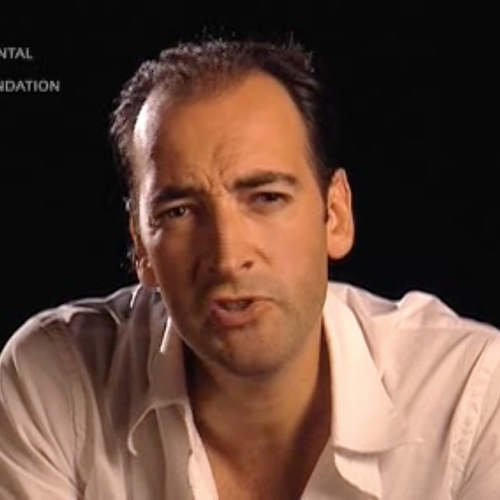 Feb 02, 2012Alistair McGowan’s impression of shrimpRead
Feb 02, 2012Alistair McGowan’s impression of shrimpReadAlistair McGowan’s impression of shrimp
Actor and impressionist Alistair McGowan talks about his support for EJF's work to highlight the devastating effects of shrimp production on wildlife and encourages consumers to buy sustainable shrimp.
-
Films
 Feb 02, 2012Ken Hom's recipe for disasterRead
Feb 02, 2012Ken Hom's recipe for disasterReadKen Hom's recipe for disaster
Chef Ken Hom describes the detrimental impacts of shrimp farming to the marine wildlife, environment, livelihoods and human rights. Together with EJF, he encourages consumers to demand sustainable, ethically-produced shrimp.
-
Films
 Feb 02, 2012What's your poison?Read
Feb 02, 2012What's your poison?ReadWhat's your poison?
EJF is working to ensure that a global ban on endosulfan is implemented soon.
-
Films
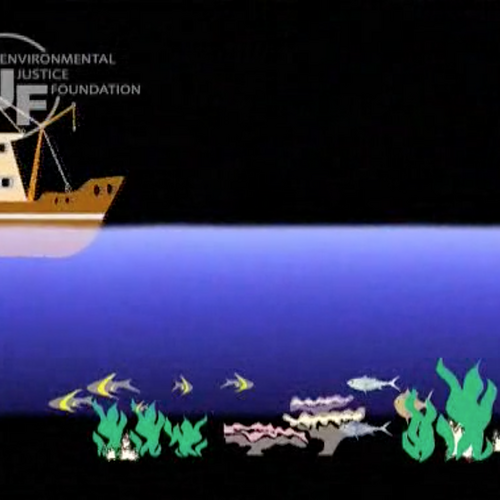 Feb 02, 2012Stop trawling - JALARead
Feb 02, 2012Stop trawling - JALAReadStop trawling - JALA
Industrial bottom trawling is one of the most destructive forms of fishing in the world, which both destroys seabed habitats and results in huge levels of bycatch.
In North Sumatra, Indonesia, EJF has worked with partner JALA to expose how local fishing communities are the ones who suffer when fish stocks crash.
-
Films
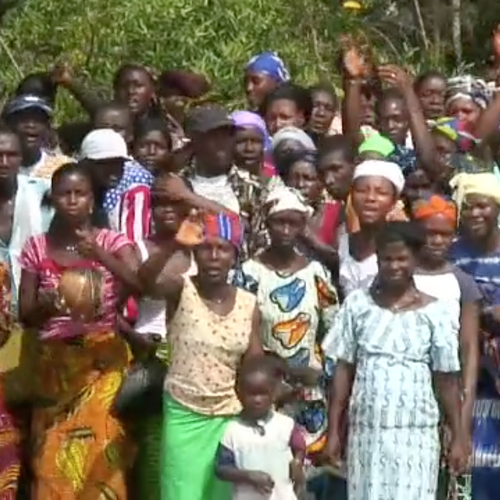 Feb 02, 2012EJF's boat in Sierra LeoneRead
Feb 02, 2012EJF's boat in Sierra LeoneReadEJF's boat in Sierra Leone
EJF delivers the boat to the communities of Sherbro Island, Sierra Leone. It will be used to help combat pirate fishing but also as a water ambulance.
-
Films
 Feb 02, 2012ENV - My Linh PSARead
Feb 02, 2012ENV - My Linh PSAReadENV - My Linh PSA
Vietnamese pop star My Linh urges people not to consume bear parts or bile, raising awareness for the campaign to end the bear trade.
